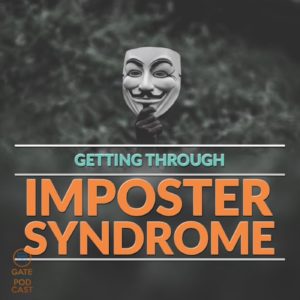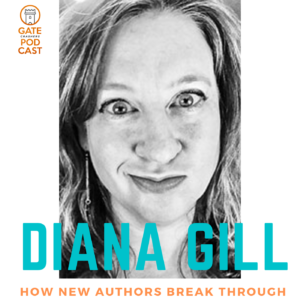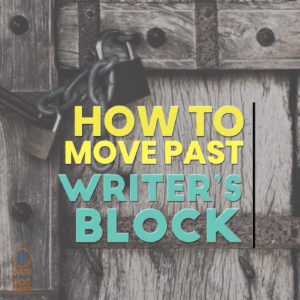- Agents
- Author News, Deals
- Awards
- Bad Poetry
- Blog News
- Books
- Career
- CBA
- Collaborating and Ghosting
- Conferences
- Current Affairs
- Deep Thoughts
- Favorite Books
- Featured
- Film
- Marketing and Platforms
- Proposals
- Publishing
- Questions from Beginners
- Quick Tips
- Religion
- Resources for Writing
- Self-Publishing
- Social Media Critique
- The Business of Writing
- The Writing Craft
- Thursdays with Amanda
- Trends
- Uncategorized
- Web/Tech
Category : The Writing Craft
-
Continue Reading "How to Handle Imposter Syndrome"
How to Handle Imposter Syndrome
If you ever think that you don’t measure up as a writer …
If you ever think that everyone else is so much better than you are …
If you ever feel like you’re just faking it …
You’re not alone.
-
Continue Reading "Historical Fiction & The Facts – Chats with Chip"
Historical Fiction & The Facts – Chats with Chip
Someone wrote to ask, “What is the author’s responsibility to the facts when writing a historical novel?” She noted she was writing about historical events, but wanted to know if she could change them. In a related note, someone else asked, “What is the ethical line between historical fiction and history?”

As I’ve said on previous occasions, I don’t think there is a line connecting fiction and history. Really. A novelist who is creating a story and weaving in actual people and events probably owes some debt to the reader to try and get the basic historical facts correct, I suppose (though even that is a questionable supposition, and many authors have altered facts and dates in order to tell a better story), but a novel isn’t a textbook. It doesn’t have a restriction that “you must have all your facts correct” or “you must accept the commonly held notions about a character’s motivations.” The author is inventing a story to entertain, or to explore themes and motivations, not to teach history.
So, while I wouldn’t create a story in which the Japanese attack Pearl Harbor on July 11, I see nothing wrong with an author creating a story depicting an interesting twist — that Roosevelt knew about the attack ahead of time, or that the attack was a rogue group of Japanese military, or that it was all a mistake done by aliens who were looking for Hawaiian shirts and a great recipe for mai tai’s.
“It’s a novel.”
It’s a novel. You can choose to tie events closely to historical facts, or you can choose to recreate history as you see fit in order to entertain readers. Have a look at the Quentin Tarantino movie Inglourious Basterds — in which the patrol sent to kill Nazis take out Adolph Hitler and the entire leadership of the Nazi party in a fire they set in a movie theater. (Um,
-
Continue Reading "How New Authors Break Through"
How New Authors Break Through
 It’s hard to get that first book deal. Really hard.
It’s hard to get that first book deal. Really hard.Yet every year, numerous debut novels get publishing deals—and some for big advance amounts.
So what causes a publisher to say “yes” to one debut novel and “no” to another?
-
Continue Reading "How to Deal with Writer’s Block"
How to Deal with Writer’s Block
 If you or someone you love suffers from writer’s block, then this is the podcast episode for you!
If you or someone you love suffers from writer’s block, then this is the podcast episode for you!Writer’s block can take on many forms. It can be a lack of motivation, a sudden disinterest in your book, an issue with plot or character or scene, and more.
When faced with writer’s block, many writers simply give up. The task of working through it seems so difficult, that it’s easier to begin a new writing project or take a year off. But it doesn’t have to be that way!
-
Continue Reading "When to Trash Your Book Idea"
When to Trash Your Book Idea
 Every writer has doubts about his or her book idea. Is this marketable? Is this unique enough? Is this engaging? Does it hold attention?
Every writer has doubts about his or her book idea. Is this marketable? Is this unique enough? Is this engaging? Does it hold attention?These doubts are normal! They’re part of the process.
But sometimes those doubts point to more than a healthy (or not-so-healthy) lack of self confidence. Sometimes they point to real trouble areas with your idea or writing.
So how do you know when the doubts are more than just doubts? How do you know when it might be time to trash your working manuscript or idea and move on to something new?
-
Continue Reading "Ask the Agent: Does a novel have to be historically accurate?"
Ask the Agent: Does a novel have to be historically accurate?
Someone wrote to ask, “What is the author’s responsibility to the facts when writing a historical novel?” She noted she was writing about historical events, but wanted to know if she could change them. In a related note, someone else asked, “What is the ethical line between historical fiction and history?”
As I’ve said on previous occasions, I don’t think there is a line connecting fiction and history. Really. A novelist who is creating a story and weaving in actual people and events probably owes some debt to the reader to try and get the basic historical facts correct, I suppose (though even that is a questionable supposition, and many authors have altered facts and dates in order to tell a better story), but a novel isn’t a textbook. It doesn’t have a restriction that “you must have all your facts correct” or “you must accept the commonly held notions about a character’s motivations.” The author is inventing a story to entertain, or to explore themes and motivations, not to teach history.So, while I wouldn’t create a story in which the Japanese attack Pearl Harbor on July 11, I see nothing wrong with an author creating a story depicting an interesting twist — that Roosevelt knew about the attack ahead of time, or that the attack was a rogue group of Japanese military, or that it was all a mistake done by aliens who were looking for Hawaiian shirts and a great recipe for mai tai’s.
It’s a novel. You can choose to tie events closely to historical facts, or you can choose to recreate history as you see fit in order to entertain readers. Have a look at the Quentin Tarantino movie Inglourious Basterds — in which the patrol sent to kill Nazis take out Adolph Hitler and the entire leadership of the Nazi party in a fire they set in a movie theater. (Um, for those who
-
Continue Reading "Ask the Agent: What do you look for in a query?"
Ask the Agent: What do you look for in a query?
I recently had an online discussion with a writers’ group, and they had several questions for me…
What are the three most important things you look for in a query?
A strong writing voice, clarity of argument (if nonfiction) or story (if fiction), and author platform.
How important are queries to your agency?
I use them as ways to look for talent. Of the queries that come in cold (that is, not introduced by authors I already represent, and not someone I met and spoke with at a conference), the percentage of queries that turn into clients is very, very low.
What experience is worth mentioning in a query?
Anything you’ve had published is worth mentioning. Anything that reveals a big platform is worth mentioning.
Do you think going to conferences and making connections is a better way to meet agents than querying them?
Absolutely. Being face to face with someone, in order to gauge personality and likability and trust, is far more important than choosing someone off the web. I think going to conferences is a GREAT way to connect with agents and editors.
What subjects and genres are currently overdone in the queries you see?
I don’t know that anything is overdone at the moment. Tastes change. Every generation needs its own voices. We see new ideas break out, and we’re always surprised. I know some people will say “dystopian is overdone,” or “Amish fiction is overdone.” They might be… until somebody creates one that sells well. (Having noted this, I’ll admit I hate the question, which get frequently. The fact is, we’re always surprised at the latest breakout hit.)
Which genres do you think deserve a comeback? What genres would you like to see in queries?
Beats me what deserves a comeback. Chick-lit is making a comeback, now known as romantic comedy. I suppose I’d like to see westerns and spy novels make a comeback.
Which genres
-
Continue Reading "Thinking about Writing: Effective Dialogue, Part 6 (Accents and Dialect)"
Thinking about Writing: Effective Dialogue, Part 6 (Accents and Dialect)
 Today’s post is dedicated to Lois Gladys Leppard, author of the Mandie books. If you weren’t a preteen girl in the 90s, you may not be familiar with the Mandie books, but they were a middle-grade series set at the turn of the century about a teenage girl living in North Carolina, and their chief charm, if I remember correctly, was that Mandie was rich and there were a lot of descriptions of her dresses. Yeah, they weren’t the deepest literature, but I DEVOURED them as an 8-and-9-year-old. Twenty years later, I couldn’t tell you much about what happened in the series (other than what her dress looked like for President McKinley’s inaugural ball), but one thing about the writing has stuck with me all this time…
Today’s post is dedicated to Lois Gladys Leppard, author of the Mandie books. If you weren’t a preteen girl in the 90s, you may not be familiar with the Mandie books, but they were a middle-grade series set at the turn of the century about a teenage girl living in North Carolina, and their chief charm, if I remember correctly, was that Mandie was rich and there were a lot of descriptions of her dresses. Yeah, they weren’t the deepest literature, but I DEVOURED them as an 8-and-9-year-old. Twenty years later, I couldn’t tell you much about what happened in the series (other than what her dress looked like for President McKinley’s inaugural ball), but one thing about the writing has stuck with me all this time…The series is set in North Carolina, and various characters (the African-American servants, in particular) were written as speaking with a strong Southern accent. The way you knew they spoke with a strong Southern accent was that practically EVERY line of dialogue spoken by those characters had the accent written into it phonetically, to the point that you sometimes had to sound it out to figure out what Liza was saying. “Yous sho’ did, Missy Manda! Now don’t yous go gittin’ that dirty, you heah?” This is a made-up line, but it’s representative of the way the “strong Southern accent” was written into the dialogue. Did it clearly communicate the speech patterns/pronunciation of those characters? Mmmmyes, but was it also distracting and clunky? Also yes. I’m probably remembering the extreme examples, but the point is, if that method of conveying an accent/regional speech style was conspicuous enough that I picked up on it as a 9-year-old and remember it 20 years later, it was probably a bit overdone.
Now, Ms. Leppard is off the hook, both because in writing for children she probably felt she needed to be a bit more
-
Continue Reading "Thinking about Writing: Effective Dialogue, Part 5 (Character Voice)"
Thinking about Writing: Effective Dialogue, Part 5 (Character Voice)
 I did a lot of theater in high school and college, and still act in local productions from time to time– I know some people would rather lick a battery than perform onstage, but I think it’s some of the most fun there is to put on a costume and pretend to be someone and somewhere else for a couple hours, and theater is one of the few socially acceptable ways to do this as an adult. Having spent so much time performing and teaching theater, I’ve played (or been forced to play) some pretty dumb games in the name of “character development” — many of which, I’m convinced, existed for no other purpose than to entertain the teacher who, bitter that his own acting career didn’t pan out, derived all his joy in life from watching teenagers pretend to be earthworms and vending machines. A couple of those theater exercises, however, bore a remarkable similarity to the kind of brainstorming that authors can do to fully flesh out their characters, and a fully fleshed-out character is going to have a more distinct voice on the page, and, by extension, will “speak” more compelling dialogue.
I did a lot of theater in high school and college, and still act in local productions from time to time– I know some people would rather lick a battery than perform onstage, but I think it’s some of the most fun there is to put on a costume and pretend to be someone and somewhere else for a couple hours, and theater is one of the few socially acceptable ways to do this as an adult. Having spent so much time performing and teaching theater, I’ve played (or been forced to play) some pretty dumb games in the name of “character development” — many of which, I’m convinced, existed for no other purpose than to entertain the teacher who, bitter that his own acting career didn’t pan out, derived all his joy in life from watching teenagers pretend to be earthworms and vending machines. A couple of those theater exercises, however, bore a remarkable similarity to the kind of brainstorming that authors can do to fully flesh out their characters, and a fully fleshed-out character is going to have a more distinct voice on the page, and, by extension, will “speak” more compelling dialogue.One of the theater exercises we’d do during high school was to interview each other in character using a list of biographical questions designed to make the interviewee put some thought into her character’s history and life. Answering these questions for your characters forces you to think about your character as a 3-dimensional person with a past instead of just a puppet in the scene you’re currently writing… and a 3-dimensional character is always going to have something more interesting to say than a puppet.
Consider answering the following questions for each of your main characters. You might be surprised how giving some thought to seemingly trivial information about a character’s past (even information that may never come to light in the novel) informs the
-
Continue Reading "Thinking about Writing: Effective Dialogue, Part 4 (Punctuating Dialogue)"
Thinking about Writing: Effective Dialogue, Part 4 (Punctuating Dialogue)
 If you’re new to the blog, you may have missed my previous scintillating posts on writing effective dialogue. Today’s topic is slightly less scintillating but just as important to creating readable dialogue which draws the reader into the story rather than pushing him away.
If you’re new to the blog, you may have missed my previous scintillating posts on writing effective dialogue. Today’s topic is slightly less scintillating but just as important to creating readable dialogue which draws the reader into the story rather than pushing him away.I’ve gotten a lot of feedback from authors who say their biggest struggle in writing dialogue is punctuating it correctly, and I’ve read too many manuscripts where the author’s incorrect punctuation and/or indentation distracted me from the actual content of the dialogue. The good news is that the majority of dialogue punctuation rules are very straightforward and easy to apply, so punctuating your dialogue doesn’t have to feel like some mystical roll of the dice if you take some time to familiarize yourself with the rules and practice using them. Here are some basic rules to remember when punctuating dialogue:
- Always put periods and commas INSIDE quotation marks. It doesn’t matter if the quotation marks are single or double, whether the quotation marks are setting off dialogue, quoted material, or the title of a work; periods and commas go inside the quotation marks.
“I love chimpanzees,” she said. “I’m also afraid of them.”
Caesar looked around at the trees, and then back at Will. “Caesar is home.”
“Take your stinking paws off me, you damned dirty ape,” he said angrily. (I watched “Rise of the Planet of the Apes” this weekend, in case you were wondering.) - Put colons and semicolons OUTSIDE quotation marks. These aren’t used as frequently in dialogue as other punctuation, but if you have occasion to use them, always put them outside quotation marks.
Shakespeare said, “All the world’s a stage”; if that’s the case, we’re in desperate need of a stage manager. - Put exclamation points and question marks INSIDE quotation marks when they apply to a line of dialogue and OUTSIDE quotation marks when they apply to a sentence as
- Always put periods and commas INSIDE quotation marks. It doesn’t matter if the quotation marks are single or double, whether the quotation marks are setting off dialogue, quoted material, or the title of a work; periods and commas go inside the quotation marks.






